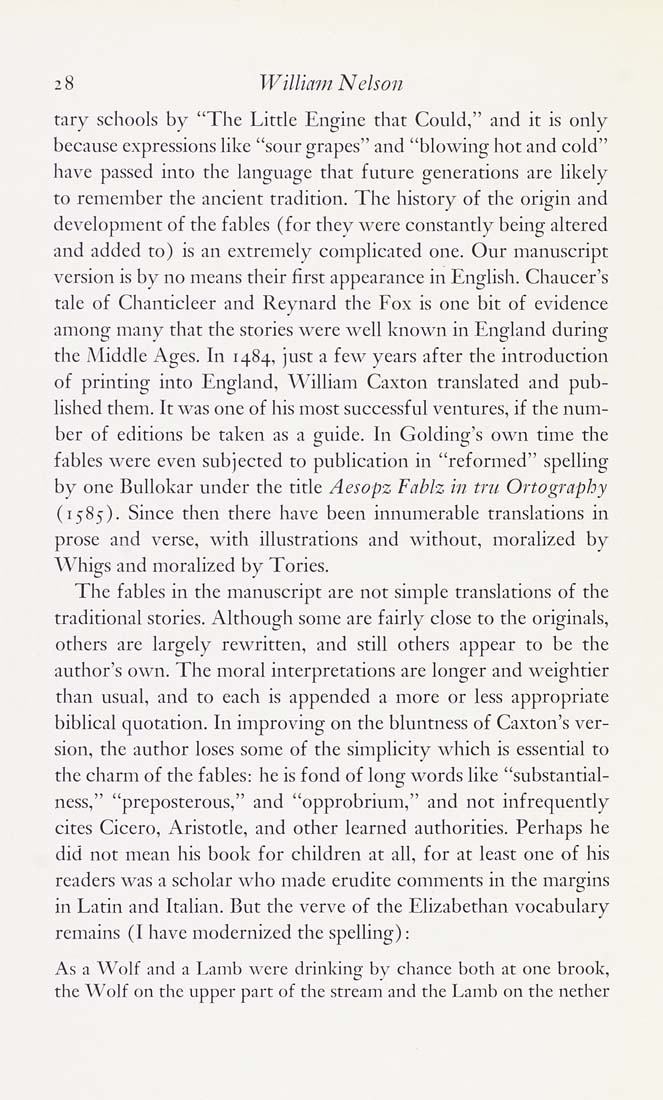Columbia Library columns (v.9(1959Nov-1960May))
(New York : Friends of the Columbia Libraries. )
|
||
|
|
|
|
| v.9,no.1(1959:Nov): Page 28 |

2 8 William Nelson tary schools by "The Little Engine that Could," and it is only because expressions like "sour grapes" and "blowing hot and cold" have passed into the language that future generations are likely to remember the ancient tradition. The history of the origin and development of the fables (for they were constantly being altered and added to) is an extremely complicated one. Our manuscript version is by no means their first appearance in English. Chaucer's tale of Chanticleer and Reynard the Fox is one bit of evidence among many that the stories were well known in England during the Middle Ages. In 1484, just a few years after the introduction of printing into England, \^'illiam Caxton translated and pub¬ lished them. It was one of his most successful ventures, if the num¬ ber of editions be taken as a guide. In Golding's own time the fables were even subjected to publication in "reformed" spelling by one Bullokar under the title Aesopz Fablz in tru Ortography (1585). Since then there have been innumerable translations in prose and verse, with illustrations and without, moralized by W'higs and moralized by Tories. The fables in the manuscript are not simple translations of the traditional stories. Although some are fairly close to the originals, others are largely rewritten, and still others appear to be the author's own. The moral interpretations are longer and weightier than usual, and to each is appended a more or less appropriate biblical quotation. In improving on the bluntness of Caxton's ver¬ sion, the author loses some of the simplicity which is essential to the charm of the fables: he is fond of long words like "substantial- ness," "preposterous," and "opprobrium," and not infrequently cites Cicero, Aristotle, and other learned authorities. Perhaps he did not mean his book for children at all, for at least one of his readers was a scholar who made erudite comments in the margins in Latin and Italian. But the verve of the Elizabethan vocabulary remains (I have modernized the spelling): As a Wolf and a Lamb were drinking by chance both at one brook, the Wolf on the upper part of the stream and the Lamb on the nether |
| v.9,no.1(1959:Nov): Page 28 |







